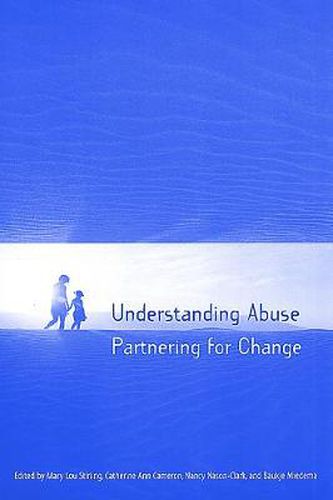Readings Newsletter
Become a Readings Member to make your shopping experience even easier.
Sign in or sign up for free!
You’re not far away from qualifying for FREE standard shipping within Australia
You’ve qualified for FREE standard shipping within Australia
The cart is loading…






The more we learn about family violence, the more it becomes apparent that it is a complex and multifaceted issue. Family violence is more than woman abuse. It is also more than child abuse, sibling abuse, parent abuse, or elder abuse. It is all of these violations and more. Nevertheless, family violence is gendered; most abused victims are female and most perpetrators are male. Family violence is not merely personal. It is also a consequence of social inequality, and in that sense is socially constructed.
Based on research projects conducted over ten years, Understanding Abuse profiles the work done by researchers of issues related to woman abuse and family violence. The contributors demonstrate the strength of community-based, action-oriented collaborations by carefully identifying the multiplicity of causes, clearly articulating the issues raised by abused women, and seeking to identify realistic solutions. Not only does this work provide invaluable information for policy makers on successful versus unsuccessful programs to prevent violence, it also provides academic and community researchers with detailed data on the intricacies of academic-community action research partnerships.
$9.00 standard shipping within Australia
FREE standard shipping within Australia for orders over $100.00
Express & International shipping calculated at checkout
The more we learn about family violence, the more it becomes apparent that it is a complex and multifaceted issue. Family violence is more than woman abuse. It is also more than child abuse, sibling abuse, parent abuse, or elder abuse. It is all of these violations and more. Nevertheless, family violence is gendered; most abused victims are female and most perpetrators are male. Family violence is not merely personal. It is also a consequence of social inequality, and in that sense is socially constructed.
Based on research projects conducted over ten years, Understanding Abuse profiles the work done by researchers of issues related to woman abuse and family violence. The contributors demonstrate the strength of community-based, action-oriented collaborations by carefully identifying the multiplicity of causes, clearly articulating the issues raised by abused women, and seeking to identify realistic solutions. Not only does this work provide invaluable information for policy makers on successful versus unsuccessful programs to prevent violence, it also provides academic and community researchers with detailed data on the intricacies of academic-community action research partnerships.